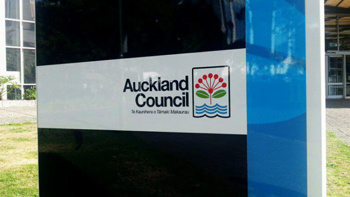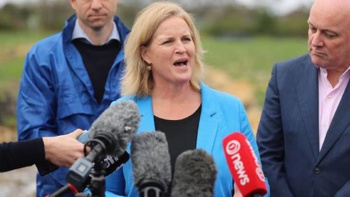The UK Supreme Court has ruled that Prime Minister Theresa May must get parliament's approval before she begins Britain's formal exit from the European Union.
LISTEN ABOVE: UK CORRESPONDENT IAN DUNT SPOKE WITH RACHEL SMALLEY
The UK's highest judicial body dismissed the government's argument that May could simply use executive powers known as "royal prerogative" to invoke Article 50 of the EU's Lisbon Treaty and begin two years of divorce talks.
However, the court rejected arguments that the UK's devolved assemblies in Northern Ireland, Scotland and Wales should give their assent before Article 50 is invoked.
"The referendum is of great political significance, but the Act of Parliament which established it did not say what should happen as a result," said David Neuberger, President of the Supreme Court which ruled by 8-3 against the government.
"So any change in the law to give effect to the referendum must be made in the only way permitted by the UK constitution, namely by an Act of Parliament."
May has repeatedly said she would trigger Article 50 before the end of March but she will now have to seek the consent of lawmakers first, potentially meaning her plans could be amended or delayed, although the main opposition Labour Party has said it would not slow her timetable.
Last week May set out her stall for negotiations, promising a clean break with the world's largest trading block as part of a 12-point plan to focus on global free trade deals, setting out a course for a so-called "hard Brexit".
Theresa May's office says it will respect the decision by the Supreme Court.
Downing Street said in a statement that nonetheless the British people voted to leave the EU and nothing has changed that.
"We respect the Supreme Court's decision, and will set out our next steps to Parliament shortly," the statement said.
Brexit minister David Davis said the British government will introduce "straightforward" legislation within days, seeking parliament's approval to trigger Brexit.
"We will within days introduce legislation to give the government the legal power to trigger Article 50," Davis told parliament.
"This will be the most straightforward bill possible to give effect to the decision of the people and respect the Supreme Court's judgement."
Some questions and answers about the decision:
DOES THIS RULING MEAN THE BREXIT PROCESS WILL STOP?
The June 23 referendum vote that produced majority support for leaving the EU has changed minds in Parliament because members don't want to be seen as thwarting the will of the people, making it very unlikely Parliament will stop Brexit in its tracks.
The majority Conservative Party favours the move out of the EU, and Labour Party leader Jeremy Corbyn has said the opposition party's lawmakers will back the process, although some have rejected his call to do so.
Corbyn indicated that Labour would seek to amend the bill the government proposes, and the Scottish National Party said it would introduce around 50 amendments. There is scattered opposition, but Parliament is expected to endorse the government's proposal.
It isn't clear, however, if the government will get approval as quickly as it wants. Extended debates, and amendments, could slow things down.
WHAT HAPPENS NEXT?
The government will now seek a vote in Parliament authorising the use of Article 50 of the Lisbon Treaty, which would start the two-year process of removing Britain from the 28-nation EU.
May's government is expected to announce its basic plans as early as Tuesday afternoon. Ministers had already drafted several possible pieces of legislation in anticipation of losing the Supreme Court case, which upheld a lower court ruling.
The government could submit legislation this week and seek quick passage of a bill. May has sought to reassure Parliament by stating that legislators will be given a chance to vote on Brexit at the end of the negotiation process when there is a proposed agreement with the EU.
Vocal opponents of Brexit will certainly be given the time to make their case in Parliament, but it will be difficult to sway legislators who feel bound by the referendum results.
WAS THE SUPREME COURT RULING A TOTAL LOSS FOR THE GOVERNMENT?
No. The government was able to convince the Supreme Court that the Scottish Parliament and the legislatures in Northern Ireland and Wales won't be given a direct say in the process.
Ministers had feared that giving the Scottish Parliament or the Northern Ireland Assembly a direct role might have slowed the process considerably given political uncertainty in Northern Ireland and strong opposition to Brexit in Scotland.
The decision allows May and her senior team to focus solely on the British Parliament.
Take your Radio, Podcasts and Music with you









